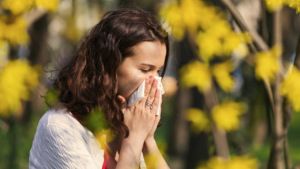News
Formidable pollen season kicks off in Denmark
This article is more than 6 years old.
Alder and hazel pollen counts exploding early due to warm weather

A cold or allergies? Symptoms can be similar (photo: Pixabay)
You might be under the impression that you’re currently struggling with a cold, as indeed many others are at this time of year. But the sneezing, runny nose and general fatigue might be down to something else entirely.
That’s because the pollen season in Denmark is already well underway, thanks to the unseasonably warm temperatures being experienced across the nation, which resulted in the country equalling the record for the warmest ever February (or winter’s) day on the 26th – the 15.8 degrees measured in Tirstrup in northeast Jutland matched a record set in Copenhagen in 1990.
“The combination of the temperature, which has been very mild for this time of year, and the windy weather has provided pollen with optimal conditions to spread,” Karen Rasmussen, the head of pollen counts at Astma-Allergi Danmark, said according to Jyllands-Posten newspaper.
Pollen counts for alder and hazel have already reached record highs for the month of February, and the dreaded birch season could be just around the corner should the warm weather persist.
READ MORE: Tick alert: Disease carriers out early due to warm weather
Weather dependent
According to the Sundhedsstyrelsen health authority, every fifth Dane is bothered by pollen allergies at some time during the year – with birch, grass and mugwort hitting the hardest.
The birch pollen season usually begins around April, but continued high temperatures could usher the season in early. The grass pollen season usually lasts from May to July, while the mugwort season usually hits in late summer.
“It’s started hard this year, but while the potential exists to produce a lot of pollen, the individual species are very dependent on the weather. The spring weather can be very changeable and, if there is a lot of rain or if it gets cold again, the pollen count will also be impacted,” said Rasmussen.
The unseasonably warm weather has also kickstarted the tick season earlier than normal this year.










































